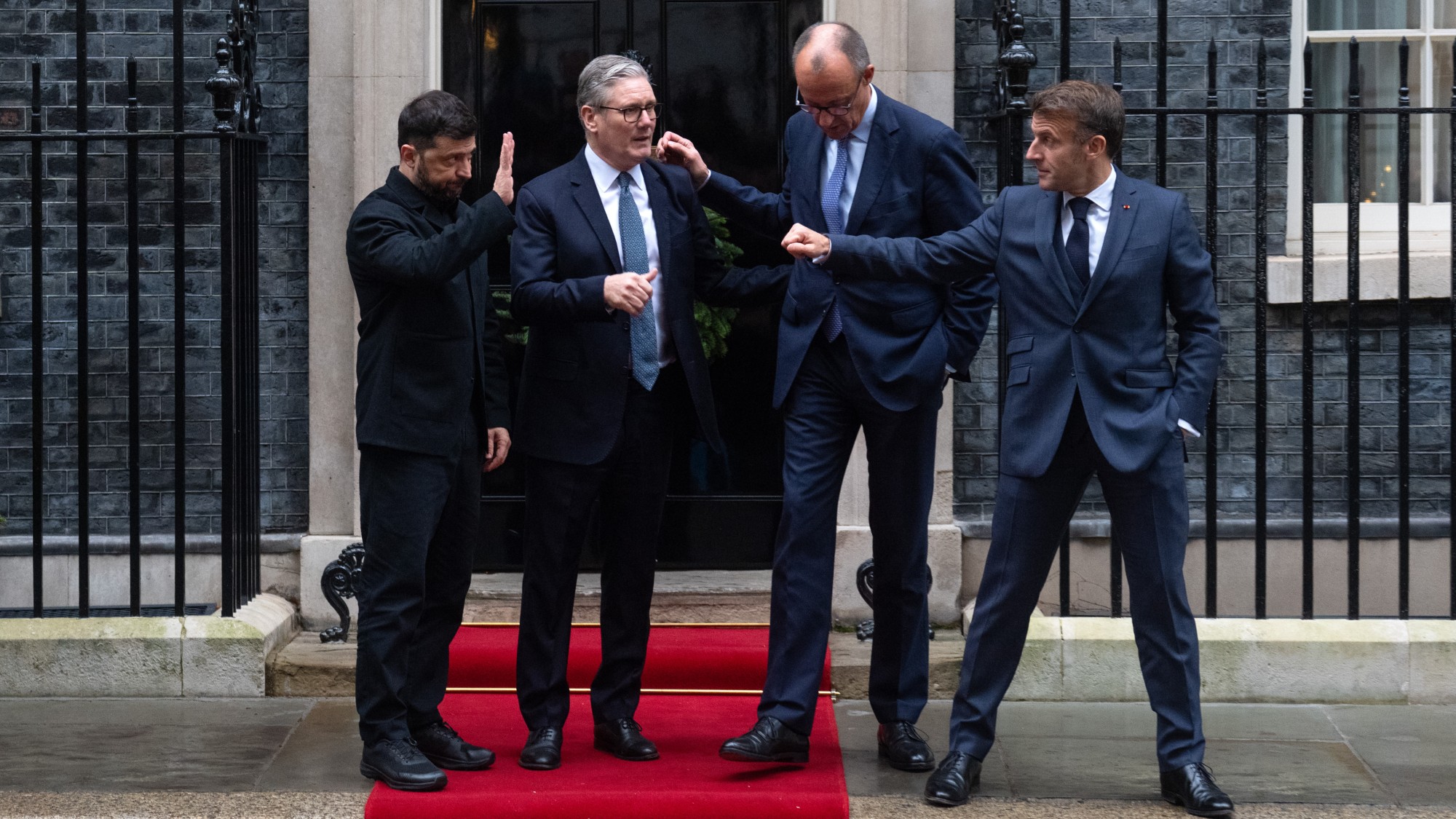How to fix The New York Times op-ed page
More honesty, less trolling


The New York Times is under fire again, this time over its op-ed page. A few controversial columnists and opinion editors have so infuriated the Times rank-and-file that they're leaking all sorts of dirt and complaints to reporters at Vanity Fair and HuffPost.
As Ashley Feinberg writes in an astounding article at HuffPost, the constant boil of controversy led op-ed page editor James Bennet to hold a meeting in December with disgruntled Times reporters. This apparently failed spectacularly, with some attendees still furious months later, largely because they saw Bennet's arguments as transparently self-undermining.
For starters, Bennet argued that the paper has a responsibility to get outside the liberal bubble, saying, "The notion that anybody has a monopoly on what the right answers are is just a dangerous kind of form of hubris that too many of us are really falling prey to right now." But later on he jarringly admits that "The New York Times is in favor of capitalism because it has been the greatest engine of, it's been the greatest anti-poverty program and engine of progress that we've seen." Elsewhere, he argues that certain views are so noxious that they don't deserve to be represented, including climate science denial and Richard Spencer's brand of white supremacy — but he then proceeds to defend publishing a pro-apartheid piece from an Israeli settler.
The Week
Escape your echo chamber. Get the facts behind the news, plus analysis from multiple perspectives.

Sign up for The Week's Free Newsletters
From our morning news briefing to a weekly Good News Newsletter, get the best of The Week delivered directly to your inbox.
From our morning news briefing to a weekly Good News Newsletter, get the best of The Week delivered directly to your inbox.
This story comes on the heels of several minor scandals: the time Bari Weiss implied U.S.-born skater Mirai Nagasu was a foreigner, then said it was the "end of civilization" when people criticized her for that; Bret Stephens publicly insulting his reporter colleagues (among other things); and Quinn Norton being hired and fired in one day when her history of slurs and friendship with an outright Nazi came to light.
After all of this, plenty of New York Times readers and staffers clearly believe the op-ed page is broken. How can it be fixed?
Let's begin answering that question by acknowledging that a good op-ed page can be a tremendously valuable addition to a newspaper. It sparks much-needed debate, highlights the paper's best reporting, and advances important arguments.
Now, if you're going to have a selection of opinion writing, you can make an effort to represent a broad diversity of views (what we do here at The Week!), or push a particular political line. The Times has long espoused the first option — especially with respect to hiring conservatives who disagree with the papers' presumptively liberal readers. At that point, there are two sub-options: Either try to represent just about everyone, from the partisan hacks to heterodox types (The Washington Post does something like this), or try to select the smartest, most honest representatives of political groups.
A free daily email with the biggest news stories of the day – and the best features from TheWeek.com
Bennet says the Times is opting for this latter sub-option. But it hasn't quite worked out that way.
To live up to the Times' stated values, the paper must broaden its range of domestic policy views, particularly to the left, without publishing war criminals, flagrant bigotry, or the like. The Times already has plenty of centrist liberals and a smattering of conservatives, but still no leftist regulars who are even close to Bernie Sanders' views. (And remember, he's still likely the most popular working politician in the country.) But the key thing is that the Times ought to find smart domestic policy writers from all camps: leftists, libertarians, conservatives, socialists, and on and on and on. (It might be easier to open the doors to all these views if Times publisher Arthur Sulzberger, Jr. didn't apparently think Sanders was roughly the mirror image of corporate mercenary Erik Prince, who wrote a notorious Times op-ed about wanting to be colonial viceroy of Afghanistan.)
The Times should also broaden its range of foreign policy views. The problem here is that many of the paper's liberals (like Thomas Friedman and Nicholas Kristof) tend to agree with the paper's belligerent neoconservatives, producing a pronounced pro-intervention slant. Any leftist voice would of necessity be generally anti-war, and so should some new conservatives — indeed, that's a great place to find some underrepresented, honest conservative views. The American Conservative, for instance, has long produced great writers of this ilk.
Next, and most importantly, the Times must learn to distinguish clever, honest argument from smug trolling. The best opinion offerings give readers a variety of muscular, intellectually honest perspectives that don't just confirm their beliefs, but provoke their thoughts. This simply cannot happen if you're just trying to get clicks by getting a rise out of people.
A good opinion page must challenge people without insulting, tricking, or infuriating them. As but one example: I disagree with the Times' Ross Douthat about most everything. But I must admit that I find his work honest and interesting. I rarely agree with him — but I learn something reading him.
A good op-ed page doesn't necessarily change minds — it opens them. And it certainly doesn't troll its readers.
Producing a lively, ideologically diverse, intellectually stimulating opinion page isn't easy — but the Times can certainly do it. It will, however, need to make some pretty stark changes to get there.
Ryan Cooper is a national correspondent at TheWeek.com. His work has appeared in the Washington Monthly, The New Republic, and the Washington Post.
-
 Will there be peace before Christmas in Ukraine?
Will there be peace before Christmas in Ukraine?Today's Big Question Discussions over the weekend could see a unified set of proposals from EU, UK and US to present to Moscow
-
 Quiz of The Week: 6 – 12 December
Quiz of The Week: 6 – 12 DecemberQuiz Have you been paying attention to The Week’s news?
-
 The week’s best photos
The week’s best photosIn Pictures A man's best friend, the elephants in the room, and more
-
 Has Zohran Mamdani shown the Democrats how to win again?
Has Zohran Mamdani shown the Democrats how to win again?Today’s Big Question New York City mayoral election touted as victory for left-wing populists but moderate centrist wins elsewhere present more complex path for Democratic Party
-
 Millions turn out for anti-Trump ‘No Kings’ rallies
Millions turn out for anti-Trump ‘No Kings’ ralliesSpeed Read An estimated 7 million people participated, 2 million more than at the first ‘No Kings’ protest in June
-
 Ghislaine Maxwell: angling for a Trump pardon
Ghislaine Maxwell: angling for a Trump pardonTalking Point Convicted sex trafficker's testimony could shed new light on president's links to Jeffrey Epstein
-
 The last words and final moments of 40 presidents
The last words and final moments of 40 presidentsThe Explainer Some are eloquent quotes worthy of the holders of the highest office in the nation, and others... aren't
-
 The JFK files: the truth at last?
The JFK files: the truth at last?In The Spotlight More than 64,000 previously classified documents relating the 1963 assassination of John F. Kennedy have been released by the Trump administration
-
 'Seriously, not literally': how should the world take Donald Trump?
'Seriously, not literally': how should the world take Donald Trump?Today's big question White House rhetoric and reality look likely to become increasingly blurred
-
 Will Trump's 'madman' strategy pay off?
Will Trump's 'madman' strategy pay off?Today's Big Question Incoming US president likes to seem unpredictable but, this time round, world leaders could be wise to his playbook
-
 Democrats vs. Republicans: who are US billionaires backing?
Democrats vs. Republicans: who are US billionaires backing?The Explainer Younger tech titans join 'boys' club throwing money and support' behind President Trump, while older plutocrats quietly rebuke new administration
